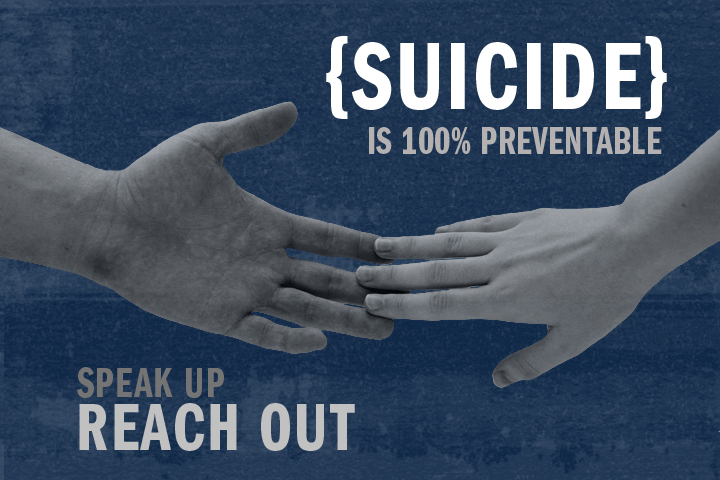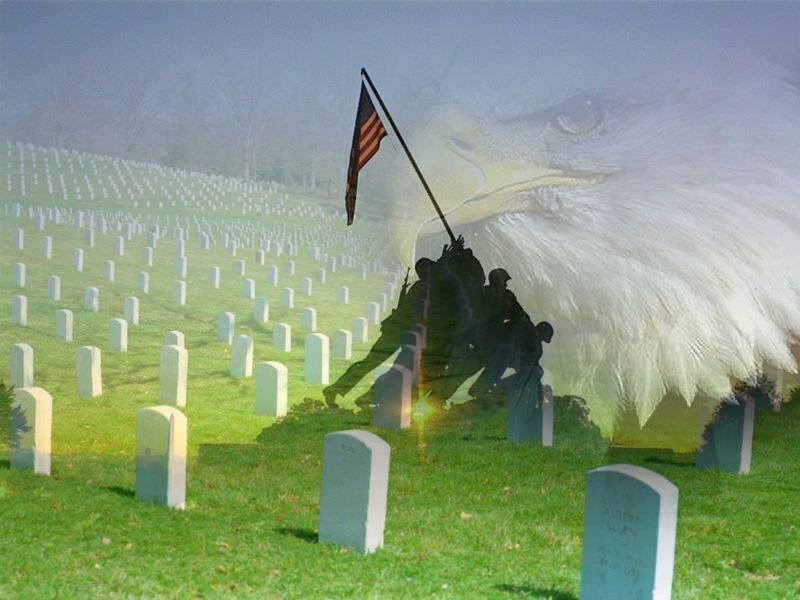NO PRESIDENTIAL LETTER -- UNACCEPTABLE!
THIS IS AN ARTICLE WRITTEN BY: Dr. Michael Blumenfield M.D. on December 23, 2009
http://www.psychiatrytalk.com/2009/12/condolence-for-soldier-suicide/
There is No Presidential Condolence if a Soldier Commits Suicide

If an American soldier is wounded and then dies or is killed immediately in Iraq or Afghanistan, the President of the United States and The Secretary of Defense write a condolence letter to the family. However, if an American soldier is wounded physically and /or psychologically during his action in Iraq or Afghanistan and then commits suicide there is no letter of condolence written to his or her family by the President and the Secretary of Defense.
There are now more suicides among our combat troops than all those killed by enemy fire in Iraq and Afghanistan together according to a recent CNN Report on this topic. There have been 354 suicides thus far in the year 2009 which is more than the 335 total of combat deaths which occurred in Iraq and Afghanistan combined . While most of the suicides don’t occur until the soldiers have returned to the states at least one third have taken place in Iraq and Afghanistan. The US Army and the National Institute of Mental Health are partnering to assess risk and resilience in service members in an epidemiologic study of mental health, psychological resilience, suicide risk, suicide-related behaviors, and suicide deaths. While this is quite important, it does not address the failure of our leaders to knowledge the sacrifice of those psychologically injured soldiers who commit suicide. This is a serious defect in our moral fabric.
While Presidents since Lincoln have been writing letters of condolence to families, there is apparently unwritten policy that this does not include families of soldiers who have committed suicide.

It is easy to imagine how hurtful that must be to a family who is burying a son or daughter who came back from war with psychological problems and then committed suicide or perhaps killed themselves while still overseas. The New York Times recently wrote a story about one such family. After Gregg and Janet Keesling’s son, Chancellor, killed himself in Iraq in June, the family received a folded flag, a letter from the Army praising their son, a 21-gun salute at his burial and financial death benefits, but not a letter of condolence from President Obama.
A spokesperson for President Obama said that the policy in regard to who should receive a letter of condolence is currently undergoing a review.
What is Going on Here?
I heard one report state that many soldiers would feel that their comrades combat death would be somehow demeaned if the families of soldiers who suicided were given an equal letter of condolence. Another view is that treating suicide the same as other war deaths might encourage mentally frail soldiers to take their lives by making the act seem honorable. These ideas may be influencing the thinking of some our military leaders and perhaps the President. I hope not.
If this is the case it is misguided thinking which resurrects the stigmatization of mental illness. These conditions are not something that anyone chooses to have. This includes depression, post traumatic stress disorder and traumatic brain injury all of which can be secondary to combat experiences.

Soldiers cannot will themselves to avoid these conditions anymore than a soldier can avoid a bullet aimed at their head or an explosive device that goes off under their vehicle. While training and good support can reduce the odds somewhat but once you are in a combat zone you are vulnerable to injury. I also know of no evidence that people on the verge of suicide would be driven to do it because their family would get a letter of condolence.
There is a famous cartoon which shows a therapist giving a patient a large slap in the face while saying “Snap out of it” and the title of the cartoon is “One Session Therapy”. If there is humor in this, it is because some people have the phantasy that it is that easy to put aside psychological injury. Anyone with knowledge about mental illness and clinical experience knows that it is not true.
A soldier who suffers to the point of ending his or her own life, has to be recognized as someone who has suffered as much as anyone can imagine.
As far as the idea that some deaths deserve a letter of condolence and some don’t, consider this. If a soldier in Iraq is working in the kitchen and the stove catches fire leading to his demise, would this death be any less deserving of a letter of condolence than a soldier who was caught in an enemy ambush? Would the loss be any less deserving of the latter soldier if it turned out that he made a foolish tactical error leading to his being killed as compared to someone who was brave enough to fall on a grenade to save others lives? Of course not. Similarly, would you compare a soldier who faced many horrific combat situations and developed PTSD with another soldier who became severely depressed shortly after his plane just touched down in the combat zone if both ended up having intolerable suicidal feelings which led to their death? Would one family be deserving of a letter of condolence and another not? I don’t believe that we judge some soldiers deaths as being more worthy than others.
Yes, we do give out special medals and recognition for unusual acts of bravery but these in no way diminish the sacrifice that others have made.

They Are All Heroes
All of the soldiers that we have discussed above would have volunteered to serve in the military and today everyone knows that this most likely could mean exposure to combat. For this they deserve our thanks and when they and their families have made the supreme sacrifice they deserve at least a letter of condolence.
Action to Fix This Situation
What can we do to see that the families of soldiers who have suicided be given the same letter of condolence as families of other soldiers who have died in the military?
We can a write a letter to the President of the United States, Secretary of Defense and our Congressperson and US Senator. Those of you who are mental health professionals should clearly state this in such correspondence and explain how you feel about this situation especially based on your understanding of mental illness. The email address to write to the President is : president@whitehouse.gov There is every indication your email would be read by his staff and a sample of them are often shown to the President. If many of the readers of this blog were to write him a note it is bound to make an impression as this issue is under consideration by the President at present. If you would like some tips on how to write to the President I found this brief article .
We should also ask our professional organizations if they have not done so already to weigh in on this matter. I am writing a letter to my colleague Dr. Alan Schatzberg, President of the American Psychiatric Association (APA), requesting him to consider asking the Board of Trustees to pass such a resolution if this has already not been done. This last November I finished my term as Past Speaker of the Assembly of the American Psychiatric Association and left the Assembly. So while I cannot sponsor such a resolution myself anymore, I will ask my former colleagues there to also consider doing so . Both the Board of Trustees and the Assembly must approve position statements in the APA. I would hope that once this organization takes it on they will be able enlist the support of our colleagues in the American Medical Association as well as other professional groups.
By all indications President Obama is a compassionate person and I believe that once he has the facts and has heard from the public including mental health professionals, he will do the right thing.

THIS ARTICLE WAS WRITTEN BY: Jeff Mason on December 9, 2009
http://www.reuters.com/article/idUSTRE5B859G20091209
White House reviewing policy on military suicide letters
WASHINGTON | Wed Dec 9, 2009 5:47pm EST
WASHINGTON (Reuters) - The Obama administration is reviewing a policy in which the president does not send letters of condolence to families of military personnel who commit suicide, the White House said on Wednesday.
"That review is ongoing," White House spokesman Robert Gibbs told a briefing. "Hopefully, we can ... conclude this review shortly."
The president currently writes letters of condolence to men and women who are killed during their service to the U.S. armed forces, but suicides are not covered.
Suicides in the U.S. Army will hit a new high this year, a top general said in November, shortly before President Barack Obama announced his decision to send 30,000 more troops to Afghanistan.
(Reporting by Jeff Mason, Editing by Sandra Maler)

THIS ARTICLE WAS WRITTEN BY: Chad Pergram in December 23, 2009
http://www.foxsmallbusinesscenter.com/politics/2009/12/23/lawmakers-ask-obama-offer-condolences-families-military-suicides/
Lawmakers Ask Obama to Offer Condolences to Families of Military Suicides
A bipartisan coalition of 44 House members is asking President Obama to begin sending condolence letters to the families of military service personnel who commit suicide.
Reps. Patrick Kennedy, D-R.I., and Dan Burton, R-Ind., initiated the effort. In a letter sent Wednesday to Obama, Kennedy and Burton asked Obama to overturn the policy. The White House says the practice is under review.
"By overturning this policy on letters of condolence to the families of suicide victims, you can send a strong signal that you will not tolerate a culture in our Armed Forces that discriminates against those with a mental illness," the congressmen wrote.
They added that some don't believe those who take their own lives deserve the same recognition "as one who dies fighting the enemy," in part because it could undermine troop morale.
Calling it a suicide epidemic, the lawmakers noted that in 2008, 140 active duty personnel committed suicide and most expect 2009 to exceed that grim record. The Department of Defense has launched a campaign to reduce suicides adding mental health servies and trying to reduce "the stigma that surrounds mental illness.
But the lawmakers also wrote that the current policy of not sending condolence letters "contradicts current military policy on funerals."
"The Department of Defense already provides service members who commit suicide a full military burial, complete with a flag-draped coffin and a 21 gun salute. We have not heard of any reports that military morale and discipline have waned as a result."
For his part, Burton took up the cause after a constituent killed himself while doing a second tour in Iraq. The soldier's parents learned that they would not get a letter from the president because their son took his own life.
"A presidential letter of condolence is as much about respect for the personal loss that a family experiences as it is about an acknowledgment by our nation that we have lost a soldier. Whether a soldier died in combat, in a car accident, or because of suicide, nothing diminishes the personal sacrifices each family endured on our country's behalf, while their son or daughter, husband or wife, served in uniform," they wrote.
Fox News' Chad Pergram contributed to this report.

THIS ARTICLE WAS WRITTEN BY: Melissa Healey on October 12, 2010
http://www.chicagotribune.com/health/la-heb-military-suicide-101210,0,5007253.story
Mental health groups call on President Obama to recognize military personnel who commit suicide
The American Psychiatric Assn. on Tuesday urged President Obama to reverse a long-standing policy of withholding condolence letters to the families of U.S. servicemen and women who commit suicide.
"A reversal of this policy to allow condolence letters to family members will not only help to honor the contributions and lives of these servicemen and women, but will also send a message that discriminating against those with mental illness is not acceptable," said Dr. Carol A. Bernstein, president of the nation's leading organization of psychiatric specialists.
The APA's appeal comes amid an escalating suicide crisis within the armed forces. A recent surge of suicides among U.S. military personnel has punctuated already record suicide rates over the last five years within the ranks of U.S. service members returning from Iraq and Afghanistan. The chairman of the Joint Chiefs of Staff, Adm. Mike Mullen, recently predicted that the mental health emergency among those who have fought in Iraq and Afghanistan is far from over: With the return home of thousands of U.S. troops after multiple deployments, "I think we are going to see significant increases in the challenges we have in terms of our families," Mullen told reporters recently.
In an effort to persuade service members to seek help for emotional problems, the military has been struggling to remove the stigma that psychiatric care has long held within the ranks of the armed forces. In calling for the recognition at the highest level, the American Psychiatric Assn. appears to be pressing the military to do more to de-stigmatize those who seek help for mental illness.
Under current policy, military members who commit suicide receive full military honors as they are laid to rest. But unlike the families of service members who are killed in combat or who die in war zones, survivors of military suicides do not receive a condolence letter from the president.
Nowhere are suicide rates higher than among Army personnel. In 2009, the Army reported 160 suicides among its active-duty soldiers, a hike from the 2008 rate of 140. Once every 36 hours, a member of the armed forces commits suicide, according to the Department of Defense, and the numbers of suicides among active-duty personnel has reached record levels in every branch of the armed services.
Joining the APA in calling for a reversal of the policy are the American Foundation for Suicide Prevention and Mental Health America. Collectively, the groups are gathering signatures to send a petition to Obama, who said last November that he was considering a shift in policy.
-- Melissa Healy/ Los Angeles Times









